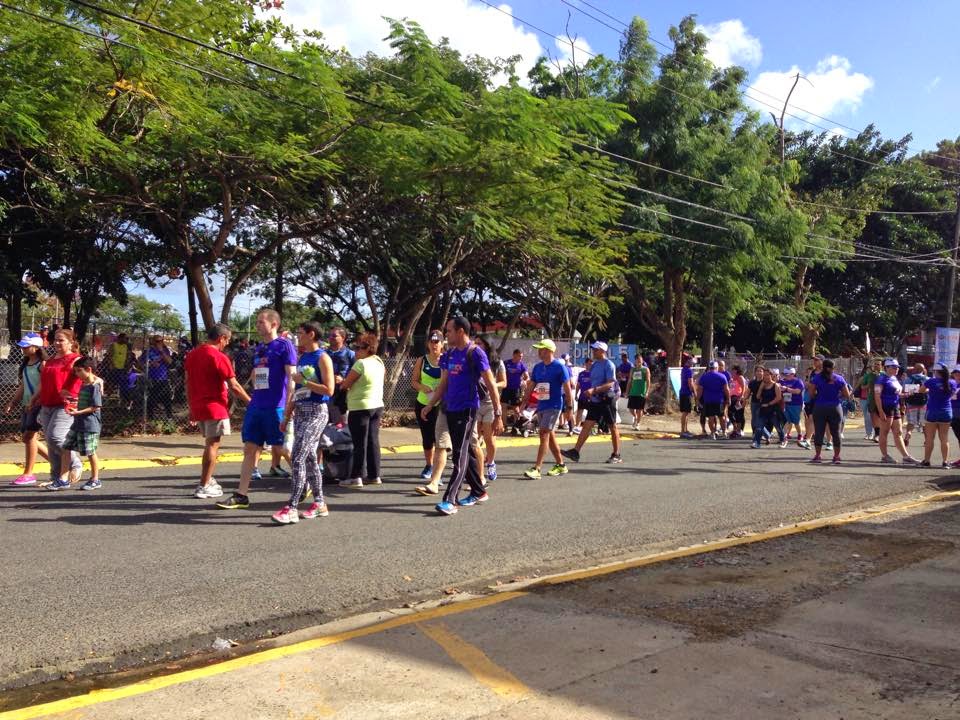Being a
tourist is one of the most enriching and rewarding experiences that exist. Through out of the years I’ve has the opportunity
of being a tourist in many countries therefore I can guarantee that there is no
such gratifying feeling that can compare to the one where you are walking
around the streets of any other country enjoy the view, the different
infrastructure of buildings, the behavior of the people (resident) among many
others. Thinking of a good place to
pretend being a tourist in my island, it came to my mind the idea of going
Sunday evening to the World’s Best 10K at the Teodoro Moscoso Bridge taking
advantage that my mom and my brother were going to participate. It was an even
that I had never been to so I didn’t has any knowledge of the logistic, purpose
and the process of participating. There were going to many contestants’ lots of
audience and many foreigners competing. So it was my best opportunity to act
like an American or “gringa” how we call in P. R.


 At the
beginning of my journey I met this nice girl about my age in the train station
who helped me by giving me the directions of how to get to the event. As soon
as I arrived I noticed many building with an infrastructure different to the
ones that I’m used to see. I asked many of the people that were there about the
marathon and after looking at me strange because of my wardrobe, some of the
could answer my doubts but others couldn’t due to the fact that I only speak
English and they only speak Spanish.
At the
beginning of my journey I met this nice girl about my age in the train station
who helped me by giving me the directions of how to get to the event. As soon
as I arrived I noticed many building with an infrastructure different to the
ones that I’m used to see. I asked many of the people that were there about the
marathon and after looking at me strange because of my wardrobe, some of the
could answer my doubts but others couldn’t due to the fact that I only speak
English and they only speak Spanish. In general I could say that they
treated me very well, some even asked about the event and where they could be
seated without noticing that I was a tourist. Something that really caught my
attention was that while I was waiting in line in a cafeteria, a man who was in
front at me, also American, had to buy a lot more for what he bought rather
than the local customers. That is something that is very common, where tourists
are charged a lot more than the original price because the employers take
advantage of them. While making my order at the cafeteria, people around looked
at me as if I were an exotic animal from Australia. At first impression some
could think that I was Puerto Rican but as soon as I spoke with my “gringa”
accent their facial expressions would change automatically. When the
competitors started arriving to the finish line, the first ones to arrive where
foreigners (from Kenya, African). After the race had finished I went back to
the train station to meet up with my mom and my brother.
In general I could say that they
treated me very well, some even asked about the event and where they could be
seated without noticing that I was a tourist. Something that really caught my
attention was that while I was waiting in line in a cafeteria, a man who was in
front at me, also American, had to buy a lot more for what he bought rather
than the local customers. That is something that is very common, where tourists
are charged a lot more than the original price because the employers take
advantage of them. While making my order at the cafeteria, people around looked
at me as if I were an exotic animal from Australia. At first impression some
could think that I was Puerto Rican but as soon as I spoke with my “gringa”
accent their facial expressions would change automatically. When the
competitors started arriving to the finish line, the first ones to arrive where
foreigners (from Kenya, African). After the race had finished I went back to
the train station to meet up with my mom and my brother.
Watching the Puerto Ricans from
another point of view for a couple hours, it made me realize how diverse we are
in our language, behavior, attitudes and actions which are main factors that
make us unique. A good reason to understand the common phrase that says you can identify Puerto Rican(Boricua) in any
place of the world you may visit to” I could also appreciate how lucky we are
to live in this little islands, with a perfect climate, good people and
specially human beings that take any challenge in life as an experience and vot
as bad wick like these running and
giving their all while making the race in wheelchairs.
For more information
about the history, rules, and other results of the event, click here ->http://www.wb10k.com/content.cfm?contentID=68









.jpg)
